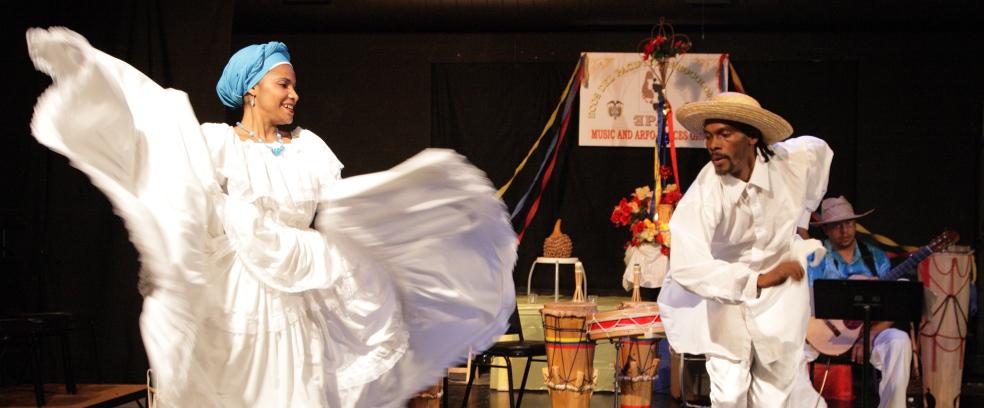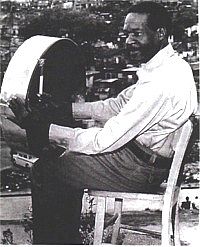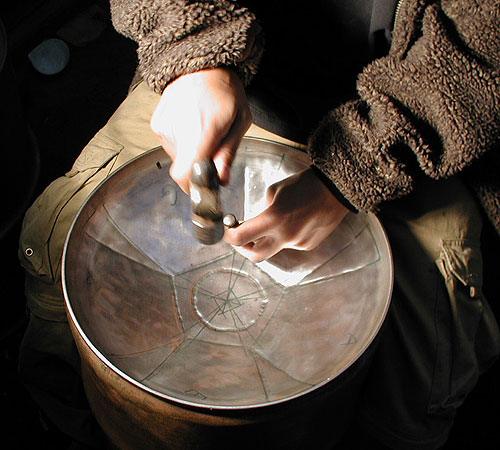The Steel Drum Story
How Cultural Heritage Survives and Thrives through the Arts

February 12th, 2014
African Diaspora began as the voluntary and involuntary migration of peoples out of Africa to all corners of the world. The international slave trade destroyed lives and communities and ripped apart individuals and their families. Millions of lives uprooted and scattered across the globe. Yet, what began as a story involving separation and attempted destruction of culture became a story wherein people survive and spread their diverse arts and ideas from Africa across the globe, changing and enriching the world we know.
Throughout the experience of the diaspora, creative  cultural energy could not be silenced by myriad sundering forces, a remarkable show of human resiliency. People looked and reached back for their cultural traditions and values, looked and reached around them for anything they could use to recreate their culture and for people to share in the re-creation, and in the process new forms and connections were also made. Some tried to take away the cultures and traditions of these people, freedom and expression. These efforts failed. One clear example of this is found in the story of the Steel Pan or Steel Drum.
cultural energy could not be silenced by myriad sundering forces, a remarkable show of human resiliency. People looked and reached back for their cultural traditions and values, looked and reached around them for anything they could use to recreate their culture and for people to share in the re-creation, and in the process new forms and connections were also made. Some tried to take away the cultures and traditions of these people, freedom and expression. These efforts failed. One clear example of this is found in the story of the Steel Pan or Steel Drum.
On an island off the coast of Venezuela, native Africans communicated using talking drums and participated in ceremonial drumming. Traditional drumming and the instruments used for it were taken away and banned, so uses for bamboo played in rhythmic fashion were developed. Bamboo was then banned by the British settlers and authorities. This oppression did not stop the community from adapting their way of life, so the art persisted, thrived, and grew. Innovation came by way of Winston "Spree" Simon, living in John John Trinidad, a resourceful man who knew the cultural heritage he had inherited. He acquired large steel barrels from the island's biscuit factories. He loaned the instrument to a fellow band mate. When the drum was returned, Spree noticed that it was dented inward. He then took a large rock and began to repair the drum from the inside, pushing sections of the drum towards the surface one dent at a time. What he discovered next was the innovation of what has become a custom of Trinidad and Tobago, the Steel pan. The four dents created four different pitches. This convex surface was eventually molded into fourteen notes, adapted in shape, and is now played in over 1000 bands worldwide.
 Steel pan is now an official national emblem of Trinidad and Tobago. Steel Band Orchestras now exist across the globe and in the United States are found everywhere from Brooklyn to Tampa Bay, Atlanta to Minneapolis, Pittsburgh to San Diego, with a collegiate level Steel Band in every state. Steelpan has been part of music by The Hollies, Harry Belafonte, The Beach Boys, Spyro Gyra, Blondie, Prince, Talking Heads, Mint Condition, DeBarge, Earth Wind and Fire, Soulja Boy, 50 Cent, virtually everything by Jimmy Buffett, in the work of Jazz artist Jacob Pastorius, Jazz-fusion group Jonathan Scales Fourchestra, and classical compositions by Dr. Jan Bach, Takemitsu, Liam Teague, and in an arrangement of Teague by Jamie Whitmarsh.
Steel pan is now an official national emblem of Trinidad and Tobago. Steel Band Orchestras now exist across the globe and in the United States are found everywhere from Brooklyn to Tampa Bay, Atlanta to Minneapolis, Pittsburgh to San Diego, with a collegiate level Steel Band in every state. Steelpan has been part of music by The Hollies, Harry Belafonte, The Beach Boys, Spyro Gyra, Blondie, Prince, Talking Heads, Mint Condition, DeBarge, Earth Wind and Fire, Soulja Boy, 50 Cent, virtually everything by Jimmy Buffett, in the work of Jazz artist Jacob Pastorius, Jazz-fusion group Jonathan Scales Fourchestra, and classical compositions by Dr. Jan Bach, Takemitsu, Liam Teague, and in an arrangement of Teague by Jamie Whitmarsh.
In a diverse society such as ours we may choose to be aware of, celebrate, and keep alive our own culture through our arts and traditions. We also have the chance to become more informed about, and energized by, the many other cultures that continue to enhance our society.
Related information:
African Contributions To American Culture
Special thanks to someone who helped inspire this article: Julio Cesar Montano Montenegro is a former volunteer with Institute for Therapy through the Arts and the founder of the Chicago based ensemble Ecos Del Pacifico Afrocolumbia (EPA!). Julio is a Chicago-area-based anthropologist, dancer, drummer, folk instrument maker, visual artist, poet, storyteller and activist who comes from the pacific coast of Columbia. This quote is from an interview Julio gave to a Brunswick Maine college-newspaper “it is our role to have culture not be something passive. Through our culture we can persuade our communities…. a very important part of instituting change in many countries.”
